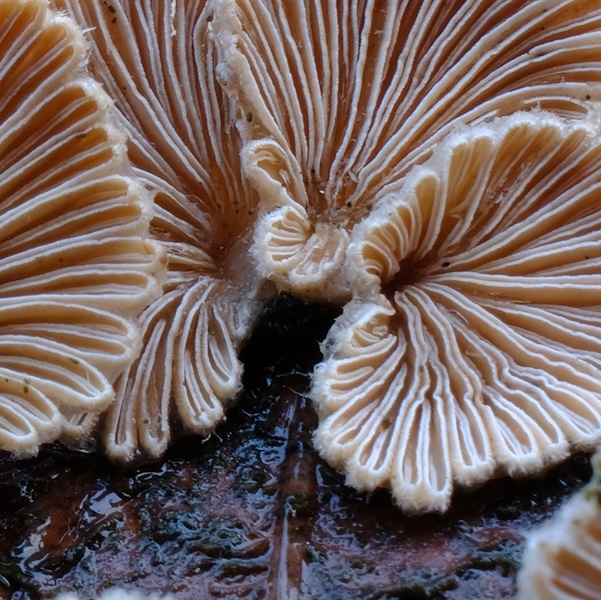Psilocybin, the active compound in magic mushrooms, has garnered significant interest for its therapeutic potential, including its effects on women’s health. One area of particular curiosity is the relationship between psilocybin and the menstrual cycle. This article explores how psilocybin may influence menstrual health, offering insights from both scientific research and anecdotal reports.
The role of hormones

Psilocybin interacts with serotonin receptors in the brain, particularly the 5-HT2A receptor, which plays a crucial role in mood regulation and hormonal balance. Estrogen, a key hormone in the menstrual cycle, can enhance the density of these serotonin receptors. This interaction suggests that hormonal fluctuations during the menstrual cycle could influence the effects of psilocybin.
Estrogen impacts binding at serotonin receptor sites, which are the primary sites of action for psilocybin. Studies have indicated that estrogen can enhance the density of 5-HT2A binding sites in specific regions of the brain, which play crucial roles in regulating mood, mental state, emotion, cognition, and behavior. This connection between estrogen and serotonin receptors helps explain why hormonal changes can affect the psychedelic experience of psilocybin (Pharmacy Times).
Anecdotal evidence and case studies
Several women have reported changes in their menstrual cycles after using psilocybin. These changes include:
- Cycle regulation: Women with irregular cycles, such as those with polycystic ovarian syndrome (PCOS) and premenstrual dysphoric disorder (PMDD), have experienced more regular periods after using psilocybin. For instance, women with PCOS and PMDD found their previously irregular cycles became more regular following psilocybin use (Pharmacy Times).
- Early menstruation: Some women report that psilocybin causes their periods to start earlier than expected. Women who took psilocybin during the mid-luteal phase of their cycle found their period started earlier. This effect is thought to be related to the compound’s impact on stress and mood, which can influence menstrual timing (PSYfront).
- Symptom relief: Microdosing psilocybin has been noted to alleviate symptoms of PMDD, such as severe mood swings, depression, and anxiety. By stabilizing mood and reducing anxiety through its interaction with the serotonin system, psilocybin may offer relief from the intense psychological symptoms associated with PMDD (Psychedelic Times) (MIT Technology Review).
Microdosing benefits
Microdosing psilocybin—taking sub-perceptual doses—has become a popular method for managing PMS and PMDD symptoms. Women report fewer mood swings, reduced anxiety, and less physical discomfort during their cycles. Microdosing offers a way to harness the therapeutic benefits of psilocybin without the need for a full psychedelic experience, making it a practical option for regular use.
Microdosing involves taking a small dose of psilocybin mushrooms every few days to achieve a desired psychological or physical outcome. This practice can enhance mood, reduce anxiety, address addictive behaviors, and improve focus and creativity. For women, microdosing has shown promise in reducing PMS and PMDD symptoms, leading to better mood stability, improved sleep, and reduced physical discomfort (Microdose Guru) (PSYfront).
Scientific insights
While anecdotal evidence is promising, more rigorous scientific research is needed to fully understand the impact of psilocybin on the menstrual cycle. Preliminary studies suggest that psilocybin’s modulation of serotonin receptors can influence hormonal pathways, but controlled studies focusing on different stages of the menstrual cycle and varying dosages are necessary to draw definitive conclusions.
One study published in 2021 examined the effects of classic psychedelics on menstrual and reproductive function. The study found that psychedelics, including psilocybin, can cause menstrual changes and even reverse amenorrhea (absence of menstruation) in some cases. However, the study was limited to a small case series, and more research is needed to fully understand the effects of psilocybin on the menstrual cycle (Pharmacy Times) (MIT Technology Review).

Potential risks and considerations
While psilocybin shows potential benefits, it is essential to approach its use with caution. Women should consult with healthcare professionals before using psilocybin, especially if they have underlying health conditions or are taking other medications. The lack of extensive scientific data means that individual responses can vary, and professional guidance can help mitigate potential risks.
Psilocybin’s effects can be influenced by various factors, including dosage, individual physiology, and the specific stage of the menstrual cycle during which it is taken. Understanding these variables can help women make informed decisions about using psilocybin to manage menstrual health issues.
Cultural and historical context
The use of psychedelics, including psilocybin, has deep historical and cultural roots. Indigenous cultures have used psilocybin mushrooms in spiritual and healing practices for centuries. These traditional uses often included ceremonies and rituals aimed at connecting with nature and achieving spiritual insights. In many cultures, the menstrual cycle is seen as a powerful natural process, and combining it with the use of psilocybin can enhance the spiritual and introspective experiences associated with both.
In modern times, the resurgence of interest in psychedelics for therapeutic purposes has led to renewed exploration of their effects on women’s health. As more women share their experiences with psilocybin and menstrual health, a broader understanding of its potential benefits and challenges is emerging.
Conclusion: psilocybin and menstrual cycle
In summary, psilocybin shows potential as a tool for regulating menstrual cycles and alleviating symptoms of PMDD and PMS. However, due to the limited scientific research, it is important for women to approach its use cautiously and consult with healthcare professionals. As interest in the connection between psilocybin and the menstrual cycle grows, more research will hopefully provide clearer guidance and a broader understanding.
By exploring the relationship between psilocybin and menstrual health, we can better understand how this natural compound might offer relief and improve the quality of life for women experiencing menstrual irregularities and severe premenstrual symptoms.
With the ongoing dialogue and increasing research into the effects of psilocybin on menstrual cycles, the future holds promise for developing more effective, natural treatments for menstrual health issues. As we continue to uncover the complex interactions between psilocybin and the menstrual cycle, women may find new, holistic ways to manage their menstrual health and enhance their overall well-being.




